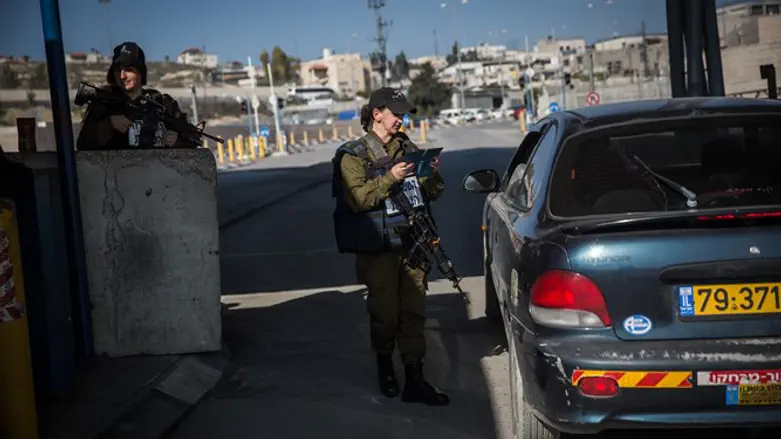
Stephen M. Flatow, a vice president of the Religious Zionists of America, is an attorney in New Jersey. He is the father of Alisa Flatow, who was murdered in an Iranian-sponsored Palestinian terrorist attack in 1995.
I’ve had some very interesting correspondence lately. One exchange was with a senior official of a major American Jewish organization. Another was with a prominent Jewish writer.
Each of them had been publicly quoted as criticizing Israel for “occupying” the Palestinian Arabs. I wrote to them to point out that way back in 1995, Prime Minister Yitzhak Rabin withdrew Israel’s forces from the areas where 98% of the Palestinians reside—thus effectively ending the “occupation.”
In both cases, they sent me the same response. They claimed the “occupation” still exists, because Israel maintains checkpoints that hamper the Palestinians’ freedom of movement. Likewise, former U.S. envoy Dennis Ross has claimed that Israel “controls the movement” of Palestinians and therefore is still guilty of “occupying” them.
This week, one of those checkpoints stopped yet another massacre of Israeli Jews. It happened at the northern checkpoint called Reihan. A Palestinian Arab truck driver tried to cross from Palestinian Authority territory into Israel. The soldiers did a routine check of the vehicle’s roof. They found a quantity of powerful explosives hidden in the truck’s air conditioning system.
The driver and his not-yet-apprehended comrades were planning to celebrate Israel’s Independence Day by massacring Israeli Jews. If not for the Reihan checkpoint, they would have succeeded. When a catastrophe is averted due to some chance occurrence, we consider it miraculous. Maybe we should call this one the Reihan Miracle.
I guess we shouldn’t be surprised that the discovery of the truck-terrorist’s plot was not reported in the Washington Post or on CNN. Highlighting the value of Israel’s checkpoints does not suit the pro-Palestinian narrative that is so common among the international media.
If the truck driver had managed to smuggle his explosives through the checkpoint and carried out the attack, the media no doubt would have covered it. But they probably would have claimed the bombing was just a Palestinian response to the “humiliation” caused by the checkpoints, which are “occupying” their territory.
According to the web site of the far-left group “B’Tselem” (I cite them lest anybody suspect that I am relying on “rightwing” sources), the Israeli army “currently operates 27 permanent staffed checkpoints in the 'West Bank'.” Twenty-six of them are situated at the border between Israel and the Palestinian Authority-controlled territories. What sovereign country does not have checkpoints at its border?
Note that the Judea-Samaria (West Bank) region covers more than 2,000 square miles. Meaning that the amount of land “occupied” by the 27 checkpoints is infinitesimally small. And the number of Palestinians “occupied” by those checkpoints is zero.
According to B’Tselem, the Israeli Army also operates 16 “temporarily manned checkpoints.” They “are generally open for Palestinians to cross without being checked,” and Israeli security forces are present only “sometimes”—meaning that they hardly even qualify as “checkpoints.”
The truck interception episode demonstrates, once again, that checkpoints are vitally necessary to save lives. It’s also a reminder that they do not constitute an “occupation.” The checkpoints straddle the Israeli border and serve the narrow, specific purpose of checking non-citizens who are trying to enter Israel. Exactly like the security checkpoints at every airport in the world.
I wonder if the Jewish organizational official and the Jewish writer with whom I have been corresponding have ever stopped to think about the implications of their position. When they complain about the alleged Israeli “occupation,” and then cite the checkpoints as evidence of “occupation,” what they are saying, in effect, is that the checkpoints should be dismantled. That is an incredibly reckless position to take.
I hope that in the wake of the Reihan Miracle, they’ll reconsider.
